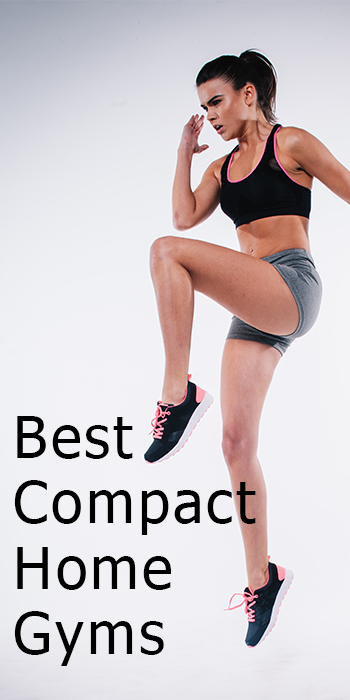In this age of increasing pollution and pandemics, breathing in clean air is a big thing. This is especially true for us city dwellers who not only have a virus to contend with but also rising levels of air pollution. This has lead to an increase of people mass buying products to increase their well-being at home. And rightly so; in these stressful times, it’s important to make a sanctuary out of our living spaces. Things like massagers for relaxation purposes, home gyms for essential exercise, and other products are key for our mental health. But as most of us are spending more time indoors and less near fresh air, is there a way to have good air quality at home? This is where many turn to air purifiers.
Here at Allforyourmind, we want you to be fully aware of all the things that could negatively and positively impact your mental and physical health. Hence we’ve posed the question, ‘How do air purifiers work?’ Many buy without really knowing how the appliances really work, and it’s no different with air purifiers. Most would say air purifiers simply take in air, clean it and spit it back out. Many would argue that plants do the same job and that it’s not exactly mountain air they provide. They’re not entirely wrong but there’s certainly more to it than that! So how do air purifiers work? Look no further…
Do air purifiers even work?
The short answer is yes-they do clean the air. The extent to which they purify the air depends on the type of air purifier you buy and which filter system it has. Air purifiers work by trapping pollutants in fine sieves inside them. The finer the sieve, the smaller the particles it’s capable of trapping. High-Efficiency Particulate Air (HEPA) filters are the benchmark for filters inside purifiers. They are guaranteed to catch 99.97% of particles larger than 0.3 microns. Microns are used to measure the size of air particles, and the human eye cannot see anything less than 10 microns in size. Not all air purifiers have HEPA filters, so you should check this before you buy one.
What they don’t do
Air purifiers clean and sanitise the air by removing particles from dirty air. They don’t add anything to air. They work in the exact opposite way that humidifiers and oil diffusers do. These things add particles to the air. Purifiers aren’t exactly the same as filters. Filters only remove particles, but purifiers can also eliminate particles from the air altogether.

What do air purifiers do?
Air purifiers essentially take in dirty/contaminated air and clean it through an internal filter system. Then they release the air so you and your family can breathe in clean air. We’ll go into the science behind these machines in the next subheading. Still, many of you may be wondering, do I even need to clean the air inside my home? After all, we’re only breathing, right? Unfortunately, the air in our homes tends to be dirtier than the air outside! A house is an enclosed space that can easily be a source of contaminants
Why you need an air purifier that works
Moisture from cooking and simply breathing can build up and lead to mould or mould spores. Air heating and cooling systems cause dust, viruses and bacteria to circulate throughout our homes. Pollen, allergens and toxins easily find their way in through doors and open windows. Smokers pollute the air with toxins, and those with pets will inevitably have particles from the fur, or their fur itself floating around. Further, all these particles mentioned get trapped and stuck in carpets and upholstery. Therefore, those who live near roads, have big families, have pets or allergies should especially consider purchasing an air purifier.
The science behind an air purifier /how they work
Something to consider is that there a few types of air purifiers and the details of how they work is slightly different for each one. Most air purifiers work by filtering the air using very thin sieves inside of them. These sieves catch small particles found in the air that are impossible to see with the naked eye. Pollutants like bacteria and viruses get trapped in these sieves inside the purifiers, and only clean air can pass through the air purifier.
How do UV light air purifiers work?
UV light air purifiers are the same as normal ones that use fine sieves to trap pollutants, However, these air purifiers go an extra mile. They have a UV light system inside that quicly eliminates any bacteria, fungi and viruses that the filter system catches. This UV light kills these pollutants and therefore proctects the filter from viral and biological contamination.
How do electrical attraction air purifiers work?
This is another kind of technology that air purifiers use to trap pollutants. There is more than one kind of electrical attraction air purifiers. One is a negative ion air purifier. Another two are:
– Elctronic air purifiers
These are also known as electrostatic precipitating cleaners. They basically draw particles in by using a fan and then they charge the particles with a series of high-voltage wires. Plates inside the air purifier (called precipitating cells) carry the opposite electrical charge. These plates then attract the contaminants as they pass by. This kind of air purifier is great because it doesn’t necessitate the replacement of filters-which is expensive. However, it does have a downside. These kinds of air purifiers aren’t as effective as HEPA air purifiers. These remove 99.97% of pollutants, but electronic ones only remove 95%. Further, many electronic air filters release ozone as a byproduct.
– Electret air purifiers
Air purifiers that have electret filters use synthetic fibres to attract particles. These fibres create static charges that do the same thing as the electronic air purifiers. The only difference is they use static electricity, and this leaves no ozone byproduct.. The electret filters come in a large variety; plain, pleated, reusable, and disposable to name a few. The type of electret filter determines how often you’ll have to replace it.
The benefits of having an air purifier

Air purifiers have a number of impressive benefits:
- The have cardiopulmonary benefits, helping both the heart and lungs by providing cleaner air. This essentially increases life expectancy.
- Improves sleep quality as it reduces particles that trigger allergies and disrupt sleep.
- Reduces the chances of airborne diseases such as the common cold and flu. In a house where everyone is breathing the same air, it’s normal to catch a cold from family members. Air purifiers can totally reduce the chances of that happening.
- Neutralises unpleasant odours.
- Eliminates harmful chemicals found indoors.
- Eliminates hazardous asbestos particles.
- Removes harmful radon.
You might still have some lingering questions about air purifiers, like which ones are the best to buy? Or are they useful for allergies? What about air purifiers with negative ion generator systems? Don’t worry, Allforyourmind’s got you covered with our range of air purifier-related articles that address exactly these issues.
















7 Comments